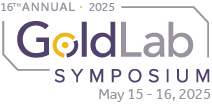

If you experience difficulty with the video you can Watch on YouTube
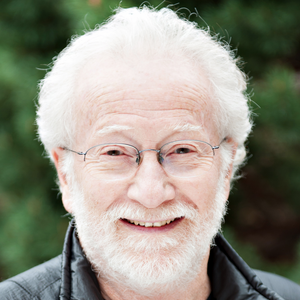
Dr. Larry Gold is the Founder of SomaLogic. Prior to SomaLogic, he also founded and was the Chairman of NeXagen, Inc., which later became NeXstar Pharmaceuticals, Inc. In 1999, NeXstar merged with Gilead Sciences, Inc. to form a global organization committed to the discovery, development and commercialization of novel products that treat infectious diseases.
During his nearly 10 years at NeXstar, Dr. Gold held numerous executive positions including Chairman of the Board, Executive Vice President of R&D, and Chief Science Officer. Before forming NeXagen, he also co-founded and served as Co-Director of Research at Synergen, Inc., a biotechnology company later acquired by Amgen, Inc. Dr. Gold recently became the CEO of Lab79, a new biotech company in Boulder, Colorado.
Since 1970, Dr. Gold has been a professor at the University of Colorado at Boulder. While at the University, he served as the Chairman of the Molecular, Cellular and Developmental Biology Department from 1988 to 1992. Between 1995 and 2013, Dr. Gold received the CU Distinguished Lectureship Award, the National Institutes of Health Merit Award, the Career Development Award, the Lifetime Achievement Award from the Colorado Biosciences Association, and the Chiron Prize for Biotechnology. Dr. Gold was also awarded the 8th International Steven Hoogendijk Prize by the Dutch Batavian Society of Experimental Philosophy in 2018.
In addition, Dr. Gold has been a member of the American Academy of Arts and Sciences since 1993 and the National Academy of Sciences since 1995. He is a fellow of the National Academy of Inventors. Dr. Gold also serves on the Board of Directors for CompleGen, Plato BioPharma, Lab79, Keck Graduate Institute, and the Biological Sciences Curriculum Study.
Dr. Gold established the Gold Lab at the University of Colorado Boulder in 1971. Starting with basic research on bacteria and bacteriophage, the lab shifted its focus to human disease following the invention of the SELEX process in 1989. The Gold Lab today focuses on the utilization of biological and information technology to improve healthcare. Dr. Gold also began holding the GoldLab Symposia in 2010, an annual event that tackles big questions in healthcare. He is determined to change healthcare for the better through teaching, research, and debate among scientists and citizens throughout the world.
Abstract
Abstract coming soon!
Abstract
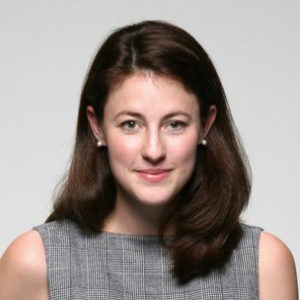 For several years now, scientists have shown that DNA makes us different in ways that matter: for our personalities, our health, and our educational and economic success. Presenting the research that led to her book The Genetic Lottery, Kathryn Paige Harden introduces readers to the latest genetic science, dismantling dangerous ideas about racial superiority and challenging us to grapple with what equality really means in a world where people are born different. Weaving together personal stories with scientific evidence, Harden shows why our refusal to recognize the power of DNA perpetuates the myth of meritocracy, and argues that we must acknowledge the role of genetic luck if we are ever to create a fair society.
For several years now, scientists have shown that DNA makes us different in ways that matter: for our personalities, our health, and our educational and economic success. Presenting the research that led to her book The Genetic Lottery, Kathryn Paige Harden introduces readers to the latest genetic science, dismantling dangerous ideas about racial superiority and challenging us to grapple with what equality really means in a world where people are born different. Weaving together personal stories with scientific evidence, Harden shows why our refusal to recognize the power of DNA perpetuates the myth of meritocracy, and argues that we must acknowledge the role of genetic luck if we are ever to create a fair society.Biography
Kathryn Paige Harden is a tenured professor in the Department of Psychology at the University of Texas at Austin, where she leads the Developmental Behavior Genetics lab and co-directs the Texas Twin Project. She is the author of The Genetic Lottery: Why DNA Matters for Social Equality. She has published over 100 scientific articles on genetic influences on complex human behavior, including child cognitive development, academic achievement, risk-taking, mental health, sexual activity, and childbearing. Her research has been featured in popular media outlets such as the New York Times, Washington Post, The Atlantic, and Huffington Post. In 2017, she was honored with a prestigious national award from the American Psychological Association for her distinguished scientific contributions to the study of genetics and human individual differences. In addition to research, Dr. Harden teaches Introduction to Psychology in a synchronous massive online class format. She received her Ph.D. in Clinical Psychology from the University of Virginia and completed her clinical internship at McLean Hospital/Harvard Medical School before moving to Austin in 2009.
Abstract
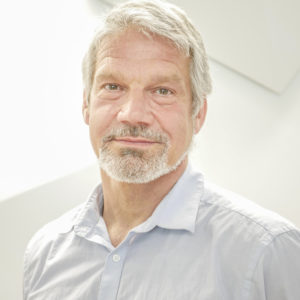 Newborn death due to infection remains one of the biggest threats to life across the human life span and across the globe. Vaccination can save millions of lives every year, but vaccines given to newborns a) induce protection too late, and b) do not cover the many pathogens that can infect newborns. We need to change our approach to begin making a difference. Increasing the newborn’s resilience to infection, i.e., focusing on the host rather than the pathogen, is one such alternative approach. For example, we have shown that the vaccine targeting tuberculosis (BCG) increases newborn resistance to a broad range of pathogens far beyond tuberculosis that are causing severe infection in newborns (sepsis). While supported by ample data, the dogmatic thinking amongst many vaccinologists (‘one vaccine targeting one pathogen’) is what stands in the way to make this pathogen-agnostic approach benefit all. Thus, the paradigm shift required now is to allow policy to be guided by data rather than dogma.
Newborn death due to infection remains one of the biggest threats to life across the human life span and across the globe. Vaccination can save millions of lives every year, but vaccines given to newborns a) induce protection too late, and b) do not cover the many pathogens that can infect newborns. We need to change our approach to begin making a difference. Increasing the newborn’s resilience to infection, i.e., focusing on the host rather than the pathogen, is one such alternative approach. For example, we have shown that the vaccine targeting tuberculosis (BCG) increases newborn resistance to a broad range of pathogens far beyond tuberculosis that are causing severe infection in newborns (sepsis). While supported by ample data, the dogmatic thinking amongst many vaccinologists (‘one vaccine targeting one pathogen’) is what stands in the way to make this pathogen-agnostic approach benefit all. Thus, the paradigm shift required now is to allow policy to be guided by data rather than dogma.Biography
Tobias Kollmann is a professor of Systems Vaccinology at Telethon Kids Institute in Perth, Australia. He also is Director of Systems Immunology with the Human Vaccine Project, a global not-for-profit network aiming to decode the human immune system. His expertise centers around newborn infectious diseases, immune ontogeny and early life vaccine responses employing cutting edge technology and analytics to extract the most information out of the typically small biological samples obtainable in early life.
He previously served as Division Head for Pediatric Infectious Diseases at the University of British Columbia, BC Children’s Hospital. Kollman completed his M.D. and Ph.D. at the Albert Einstein College of Medicine, Bronx NY, followed by a residency in pediatrics and fellowship in infectious diseases at the University of Washington, Seattle, WA.
Abstract
Abstract coming soon!
Abstract
Abstract coming soon!
Abstract
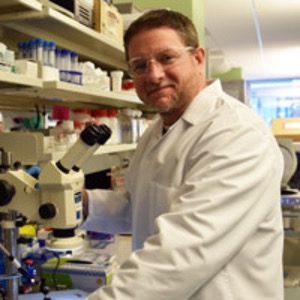 Building more relevant human model systems to explore complex cardiovascular biology is essential as we work to uncover new therapeutic treatment options for heart failure. Dr. MacDonnell will share the rationale and development of human-based cardiac cellular and tissue model systems.
Building more relevant human model systems to explore complex cardiovascular biology is essential as we work to uncover new therapeutic treatment options for heart failure. Dr. MacDonnell will share the rationale and development of human-based cardiac cellular and tissue model systems.Biography
Scott MacDonnell currently works at Regeneron Pharmaceuticals in the department of Cardiovascular, Fibrosis, and Renal Disease. Previously, he worked for 8-years as a principal scientist at Boehringer Ingelheim within the department of CardioMetabolic Disease Research where his research focused on identifying novel therapeutic treatment options for chronic kidney disease, heart failure, and fibrosis.
MacDonnell completed a postdoctoral fellowship at Temple University Medical School in the lab of Dr. Steve Houser. His fellowship research focused on identifying mechanisms responsible for the pathogenesis of heart failure. He obtained his undergraduate and master’s degrees in exercise physiology from the University of Delaware and completed his doctoral work in cardiovascular physiology at Temple University in Philadelphia, PA.
Abstract
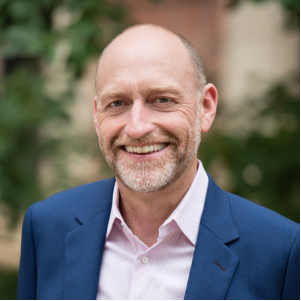 The human body has evolved with an ability to rapidly adapt to physical challenges by allowing controlled injury and repair of skeletal muscle as a way to increase muscle size and strength. Different skeletal muscle fiber populations exhibit different thresholds for this type of remodeling with an aim towards maximizing the speed of adaptation while minimizing the potential for detrimental effects on existing function. In serious inherited muscle diseases such as Duchenne and Becker muscular dystrophy, loss or mutation of the supportive muscle protein dystrophin results in an amplification of adaptive injury processes and uncontrolled damage in response to normal daily activities. With time, this leads to fibrosis, muscle loss, disability, and early death from cardiac or respiratory muscle weakness.
The human body has evolved with an ability to rapidly adapt to physical challenges by allowing controlled injury and repair of skeletal muscle as a way to increase muscle size and strength. Different skeletal muscle fiber populations exhibit different thresholds for this type of remodeling with an aim towards maximizing the speed of adaptation while minimizing the potential for detrimental effects on existing function. In serious inherited muscle diseases such as Duchenne and Becker muscular dystrophy, loss or mutation of the supportive muscle protein dystrophin results in an amplification of adaptive injury processes and uncontrolled damage in response to normal daily activities. With time, this leads to fibrosis, muscle loss, disability, and early death from cardiac or respiratory muscle weakness. Biography
Alan Russell is the Co-Founder and Chief Scientific Officer of Edgewise Therapeutics, based in Boulder CO, dedicated to the discovery and development of novel medicines to treat Duchenne muscular dystrophy and other severe, inherited muscle diseases. Previously, Dr. Russell served at GlaxoSmithKline as VP and Head of the Muscle Metabolism Discovery Performance Unit, leading a broad discovery and development effort focused on patients for whom muscle function is compromised. Prior to this, he worked at Cytokinetics Inc. and is the co-inventor of Tirasemtiv and Reldesemtiv, direct muscle sensitizers in clinical trials for Amyotrophic Lateral Sclerosis (ALS).
Dr. Russell received a B.Pharm. in Pharmacy and Pharmacology and Ph.D. in Cell Biology and Gene Therapy from the University of Bath in the UK and Postdoctoral training at the Stanford University School of Medicine. He has been active in the discovery and development of medicines to improve skeletal muscle health for the last 20 years.
Abstract
Abstract coming soon!
Abstract
Abstract coming soon!
Abstract
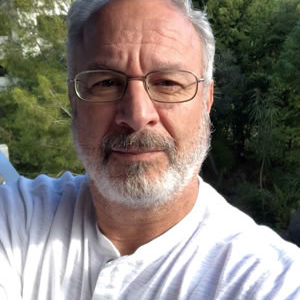 Using satellite data of the polar ice caps allows CIRES to map these regions in new ways, and study the effects of climate change in Antarctica. This data has witnessed the collapse of ice shelf areas and glacier acceleration in the Antarctic Peninsula, ice streams of the Ross Ice Shelf, and wind-snow interactions on the East Antarctic Plateau. A recent study used satellite thermal data to identify the coldest locations in Antarctica, and the processes that set their minimum winter temperatures.
Using satellite data of the polar ice caps allows CIRES to map these regions in new ways, and study the effects of climate change in Antarctica. This data has witnessed the collapse of ice shelf areas and glacier acceleration in the Antarctic Peninsula, ice streams of the Ross Ice Shelf, and wind-snow interactions on the East Antarctic Plateau. A recent study used satellite thermal data to identify the coldest locations in Antarctica, and the processes that set their minimum winter temperatures. Biography
Dr. Ted Scambos is a Senior Research Scientist at the Earth Science and Observation Center, a part of the Cooperative Institute for Research in Environmental Sciences (CIRES) at the University of Colorado in Boulder. He has specialized in using satellite data of the polar ice caps to map these regions in new ways, and study the effects of climate change in Antarctica. Among his research interests are climate change impacts on the polar regions, Antarctic history, geochemistry and planetary science. He has studied the collapse of ice shelf areas and glacier acceleration in the Antarctic Peninsula, ice streams of the Ross Ice Shelf, and wind-snow interactions on the East Antarctic Plateau. A recent study used satellite thermal data to identify the coldest locations in Antarctica, and the processes that set their minimum winter temperatures. A major focus of his work now is developing instrumentation to try to better monitor and understand Antarctic climate and ocean circulation in areas of major change. He holds a Masters degree from Virginia Polytechnic Institute and State University and a Ph.D. in geology from the University of Colorado at Boulder (1991). His interest in satellite data began when he used Landsat imagery for his Ph.D. thesis. Prior to coming to NSIDC, he worked at NASA’s Goddard Space Flight Center studying Antarctica using satellite data. Dr. Scambos served as Lead Scientist at NSDIC for 14 years. He has been on twenty-one expeditions to Antarctica, in every region of the continent and the sea ice that surrounds it. Recent work has taken him from unique large dune features in the center of East Antarctica (“megadunes”), to icebergs off the shore of the Antarctic Peninsula. He was part of an international scientific team that crossed Antarctica by tractor traverse in 2008-2009. He is the author or co-author of more than 150 scientific articles on his research, with funding from NASA, NSF, and USGS. He lives with his wife Kari in Lafayette, Colorado, and has two adult sons, Alex and Ben.
Abstract
 Leilani Raashida Henry is the author of the book The Call of Antarctica: Exploring and Protecting the World’s Coldest Climate. She utilizes the diaries of her father George W. Gibbs, Jr., the first person of African descent to set foot on the continent of Antarctica, to explore this beautiful and desolate part of the world. Leilani will talk about the expedition on which her father served (Admiral Byrd III), the continent itself, and its importance to the global environment.
Leilani Raashida Henry is the author of the book The Call of Antarctica: Exploring and Protecting the World’s Coldest Climate. She utilizes the diaries of her father George W. Gibbs, Jr., the first person of African descent to set foot on the continent of Antarctica, to explore this beautiful and desolate part of the world. Leilani will talk about the expedition on which her father served (Admiral Byrd III), the continent itself, and its importance to the global environment.Biography
Leilani Raashida Henry, M.A. and licensed Educational Kinesiologist is a game changer. Her 25-year experience in consulting and coaching brings excitement and lightning-speed results to tough leadership challenges. Formerly Director of Training and Development with Jones Intercable, and an Organizational Development Specialist at Honeywell and Lockheed Martin, Leilani co-designed Honeywell’s first company-wide DEI training.
She is a demonstrated thought leader in the field of Organizational Development, as cited in several national publications and organizations. She’s been awarded a fellowship for her work in dialogue from Regis University’s Institute on the Common Good.
Her lifetime experience in the healing and performing arts is integrated into her unique approach to working across differences to facilitate understanding and transformation. She works with Fortune 50 companies, Ivy League institutions and non-profits. She authored the “Navigating Conflict” chapter, in Springer’s, Management and Leadership Skills for Medical Faculty. Leilani received a B.A. from Spelman College, in Atlanta and M.A. from St. Thomas University, in St. Paul, MN. Born in Hawaii and raised in Minnesota, She is Joyce Gibbs’s daughter, resident of Charter House and George W. Gibbs Jr.’s daughter, who was crew on Admiral Richard E. Byrd’s III expedition that was headed to the South Pole. Her book, The Call of Antarctica: Exploring and Protecting the World’s Coldest Climate, launched October 2021.
Abstract
Abstract coming soon!
Abstract
Abstract coming soon!
Abstract
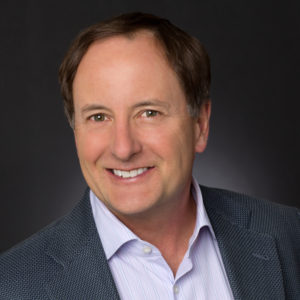 Drug prices need to be high to finance research and development but low to ensure affordability and access. Attempts to balance these conflicting imperatives are bedeviled by scientific uncertainty as to product effectiveness at the time of initial launch and the subsequent evolution of clinical evidence. The combination of multiple goals and scientific complexity creates one political firestorm after another, exemplified most recently by the accelerated FDA approval, budget-crushing manufacturer’s price, restricted Medicare coverage decision, and broad physician rejection of Ahuhelm for Alzheimer’s disease. In this presentation, Robinson describes how drug prices are negotiated by innovators and purchasers in the context of rapidly evolving scientific knowledge. He then describes a model of dynamic prices that adjust to changes in the evidence of a drug’s safety and effectiveness, to be applied to products such as Ahuhelm that are launched through FDA’s accelerated review and Medicare’s conditional coverage pathways.
Drug prices need to be high to finance research and development but low to ensure affordability and access. Attempts to balance these conflicting imperatives are bedeviled by scientific uncertainty as to product effectiveness at the time of initial launch and the subsequent evolution of clinical evidence. The combination of multiple goals and scientific complexity creates one political firestorm after another, exemplified most recently by the accelerated FDA approval, budget-crushing manufacturer’s price, restricted Medicare coverage decision, and broad physician rejection of Ahuhelm for Alzheimer’s disease. In this presentation, Robinson describes how drug prices are negotiated by innovators and purchasers in the context of rapidly evolving scientific knowledge. He then describes a model of dynamic prices that adjust to changes in the evidence of a drug’s safety and effectiveness, to be applied to products such as Ahuhelm that are launched through FDA’s accelerated review and Medicare’s conditional coverage pathways.Biography
James Robinson is Leonard D. Schaeffer Professor of Health Economics at the University of California at Berkeley. He serves on a variety of professional advisory boards and gives numerous invited speeches for pharmaceutical and technology firms, health insurance plans, hospitals, physician organizations, universities, and public agencies.
At Berkeley, Professor Robinson’s research focuses on the biotechnology, medical device, insurance, and health care delivery sectors. He has published three books and 150 papers in peer-reviewed journals such as the New England Journal of Medicine, JAMA, and Health Affairs. He teaches classes on public policy, health insurance, and the economics of the life sciences industry.
Abstract
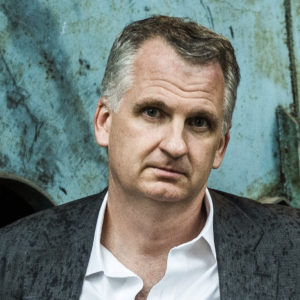 Tim Snyder reflects on the state of the conflict in Ukraine and his view on the importance of the outcome for the rest of the world.
Tim Snyder reflects on the state of the conflict in Ukraine and his view on the importance of the outcome for the rest of the world.Biography
Timothy Snyder is the Richard C. Levin Professor of History and Global Affairs at Yale University and a permanent fellow at the Institute for Human Sciences in Vienna. His books include Marxism, and Modern Central Europe (1998); The Reconstruction of Nations (2003); Sketches from a Secret War (2005); The Red Prince: The Secret Lives of a Habsburg Archduke (2008); Bloodlands: Europe Between Hitler and Stalin (2010); Thinking the Twentieth Century (with Tony Judt, 2012); Black Earth: The Holocaust as History and Warning (2015); On Tyranny: Twenty Lessons from the Twentieth Century (2017); The Road to Unfreedom: Russia, Europe, America (2018); and Our Malady: Lessons on Liberty from a Hospital Diary (2020). Snyder’s work has appeared in forty languages and has received a number of prizes. He has appeared in documentaries, on network television, and in major films. His books have inspired poster campaigns and exhibitions, films, sculpture, a punk rock song, a rap song, a play, and an opera. His words are quoted in political demonstrations around the world. He is currently finishing a philosophical book about freedom.






